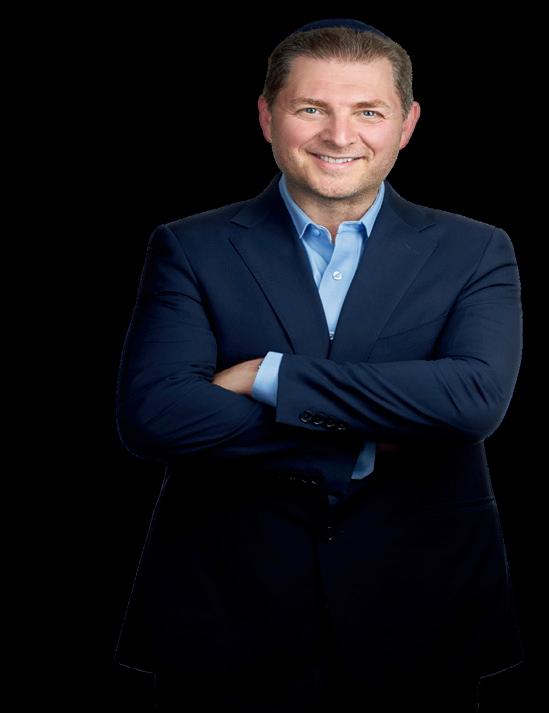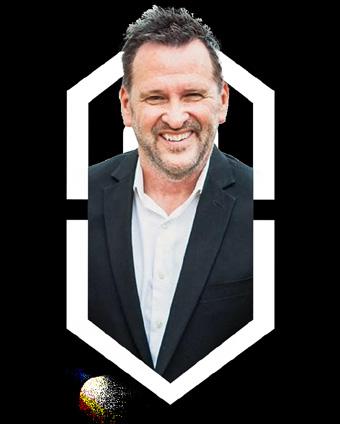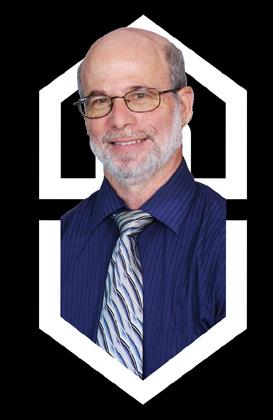





































The Young Israel of Bal Harbour is proud to invite you to aspecial Shiur by world renowned posek, Av Beis Din, Rosh Kollel, author and lecturer








































The Young Israel of Bal Harbour is proud to invite you to aspecial Shiur by world renowned posek, Av Beis Din, Rosh Kollel, author and lecturer

At The Young Israel of Bal Harbour
•Open to the public
•No RSVP required
•Tu B'shvat refreshments served
February 12, 7:30 PM














































© The South Florida Community Voice Magazine. All rights reserved. Reproduction in printed or digital form in whole or in part in any form without prior written permission is prohibited. The publisher reserves all right to edit all articles for clarity, space and editorial sensitivities. Submissions cannot be returned to sender. The South Florida Weekly Magazine is not responsible for the cash flow of any advertised product or service that appears in these pages. The South Florida Community Voice Magazine assumes no responsibility for the content of articles or advertisements in this publication, nor for the content of books that are referred to or excerpted herein.



































A new neighborhood is being built on the outskirts of Upper Tiberias near Poriya, in the Lower Galilee. The neighborhood is called, Tiveria HaMoshava
The neighborhood will consist of low rise apartment buildings, semi detached cottages, and some fully detached cottages
Balcony
A fast train station is coming to this area of Tiberias, just across the main road! Enjoy a 1-hour ride straight to Tel Aviv.
The municipal stadium is being constructed there now Major stores for shopping are going up
A suburban layout with new playgrounds
Just a short drive to the Kinneret and holy sites, this area offers cooler temperatures and less congestion than lower Tiberias neighborhoods Exclusive opportunity: 21 semi-detached cottages available in this new neighborhood! Join Rabbi Nesanel Cadle’s 3rd Kehila in Eretz Yisrael, attracting many English-speaking families
By Sivan Rahav Meir
A MATTER OF PERSPECTIVE
Parashat B’Shalach:
Complaining During the Miracle
One of the most incredible texts I have ever encountered explores a verse from this parashah, describing the Splitting of the Red Sea. Amid this extraordinary, miraculous event, the Midrash reveals a conversation between two Jews, Reuven and Shimon. As they traversed the seabed, they remarked, “In Egypt, we were immersed in mortar, and here we are still surrounded by mortar. In Egypt we had the mortar that accompanied the bricks and here at the Red Sea we have the mud caused by the splitting waters.”
Reuben questioned the difference between their past bondage and their current situation. Amidst the miracle, all he could perceive was mud and dirt; to him, mortar was mortar, this time, in a new place. His perspective was clouded, preventing him from grasping the significance of the moment. He could not see past the mud to look up and appreciate the miraculous, historic events unfolding around him.
This Midrash teaches us about the power of perspective. It is possible to live amidst wonders and yet be completely oblivious to them, failing to recognize, acknowledge, or even understand them. Our interpretation of our surroundings and experiences
is profoundly subjective—we choose how we perceive the world around us. A person could have the sea split for him, yet all he does is complain about the inconvenience.
The entire country, and I think, the whole Jewish world celebrated the release of Agam Berger from captivity last week. Seeing the moving footage of Agam’s reunion with her family reminded me of various meaningful moments shared with her mother, Meirav, throughout the past year and a half:
• Meeting a delegation of Jews from abroad, Meirav said, “Agam was kidnapped because she’s Jewish. Be more Jewish!”
• Meirav met people at Kever
Rachel, at the Kosel, and at countless tefillah events, some of which were large gatherings while others were more intimate. “I only started learning the parashah now,” she said, “and it gives me such an anchor, such a compass.”
• Meirav launched an initiative for taharas hamishpacha, directly asking women (employing lots of humor, too) to pray for Agam when at the mikvah. Moving notices from her appear in mikvahs across the country, specifically mentioning the name that millions in the Jewish world said this year in prayer: Agam bas Meirav. “We need renewal. We need to go to the mikvah and come out different, all of us,” she said, exhorting women to “add purity and holiness to the world.”
• Meirav came to every event wearing her shirt, like all family and friends, with Agam’s famous quote on it: “I have chosen the path of faith.” This quote from Tehillim was on Agam’s social media profile, and it became the motto of this entire struggle. “I have chosen the path of faith” — not the path of TV studios, not the path of politics.
• Speaking to Nova survivors Meirav gave them comfort and encouragement. “Don’t
I am a link in the chain, entrusted with passing down our Mesorah to the future leaders.
Rabbi Hershel Schachter Rosh Yeshiva, RIETS
By advancing our academic excellence and providing a values-based education, Yeshiva University is preparing the next generation of leaders for both personal and professional success poised to transform their communities and the world around them. Your support will help us meet evolving needs and propel us into our next great era.

be afraid to live, to dance, to be happy. I’m telling you this as a mother of a hostage: Don’t feel guilty! I want to see you smiling.”
• On Simchat Torah 5784, exactly one year after the kidnapping, Meirav stood before a Torah scroll and, surrounded by hundreds of people, spoke from her heart. It was a moment I haven’t yet found the words to describe. Maybe in the future.
Thank you, Meirav, for reminding us about the big story and making us more connected to it.
What to do with all these feelings?
If you’re feeling overwhelmed these days, struggling to contain
your emotions, consider the coping mechanism offered by the Torah portion we read just last Shabbat; amidst the historic, dramatic narrative, we received practical tools.
One moment the plague of the firstborn is described, and all the firstborn sons in Egypt die, and the next, we are given a practical commandment—to sanctify the month. Then, Pharaoh announces that the people of Israel can leave Egypt, but in the midst of this drama, God commands us to don tefillin and celebrate the Seder night in every generation.
Why does the portion that describes our exit from Egypt also contain no fewer than 20 commandments? There’s a deep and important message here. The Torah is not a fictional
book or a movie. It is a Torah of life. Therefore, amidst the most intense, dramatic moments, it gives us anchors, incorporating eternal values into our routine, everyday lives. The story is engraved onto our hearts in the most practical way.
In this period too, there is a call to elevate our turbulent emotions to something tangible: commandments and good deeds. During these emotionally charged days particularly, everyone is invited to ponder what they will take upon themselves, which permanent anchors they will add to their lives.
My National Science Foundation-funded project bridges cybersecurity education and research for mobile health innovation.
I AM YESHIVA UNIVERSITY.
Dr.
Honggang Wang Professor and Department Chair Katz School of Science and Health
By advancing our academic excellence and providing a values-based education, Yeshiva University is preparing the next generation of leaders for both personal and professional success poised to transform their communities and the world around them.
Your support will help us meet evolving needs and propel us into our next great era.
Vika Bekker’s journey to Stern College for Women was anything but traditional. Raised in a secular Jewish home in Buffalo Grove, Illinois, she first connected with Judaism through NCSY in high school, despite her immigrant parents’ reluctance. By the time she transferred to Stern from the University of Illinois, she faced a new challenge: catching up with peers who had spent years immersed in Jewish education.
The solution came in the form of the Mechina Pathways program. Designed for students from non-traditional Jewish backgrounds, Mechina gave Vika the foundation—and the community—she needed to thrive. “Being ‘out-of-the-box’ is difficult,” says Vika, who graduated from the Sy Syms School of Business in 2023. “But Mechina made me feel included within the Torah environment I longed for.”
The Mechina Program was established in 2004 by Shoshana Schechter, program director and associate dean of Torah Studies and Spiritual Life. Drawing on years of outreach experience across four continents, she recognized the significant gaps in Jewish education many young people face. She first noticed it as a Stern student, observing peers who struggled with little to no Jewish knowledge, and again when she began teaching at Stern in 1998.
“I met young women who had overcome incredible odds to get to Stern,” recalls Dean Schechter, aka, “Mechina Mom,” who has a master’s degree from YU’s Revel Bernard Revel Graduate School of Jewish Studies. “It struck me that while Yeshiva University has the James Striar School (JSS), which provides foundational Jewish education for men, there was nothing compara-
ble for women.
The four-year program supports around 30 new women each year from across the world—including Tahiti, South Africa, Ukraine, South America, Morocco, Europe and Australia—offering beginner and intermediate Judaism classes alongside the full Stern College curriculum. Beyond academics, Mechina fosters a sense of belonging, with students bonding over shared Shabbatonim, events like the Purim seudah hosted by YU President Rabbi Dr. Ari Berman, and personal milestones celebrated together.
The impact of Mechina extends far beyond its students. These young women don’t just transform their own Jewish journeys—they also enrich the YU community as a whole. They bring fresh perspectives and enthusiasm to Torah study, inspiring those around them who often take their Jewish education and YU for granted. Set up with fellow students to learn together, they inspire each other. “Mechina students bring something unique to our community,” Dean Schechter says. “They enrich the Beit Midrash with perspectives women from traditional religious backgrounds might never consider. They remind us that there isn’t just one way to connect to Hashem.”
For students like South African-born Leah Schewitz, Mechina was nothing short of life-changing. “It was the first time I felt part of a community that shared my thirst for growth,” says Leah, who graduated as valedictorian of the Sy Syms School of Business Class of 2023. “I could ask questions freely and explore my connection to Judaism without judgment. I am forever grateful for the community
that embraced me and the mentors who helped me grow in ways I never thought possible.”
Esther Serfaty, from Caracas, Venezuela, shares a similar story of growth. Raised in a traditional Jewish family and attending day school, Esther dreamed of deepening her connection to Judaism in college. But when it came time to choose, Yeshiva University felt intimidating. “I was nervous—what if my background wasn’t enough, and I couldn’t keep up?” she says.
That’s where the Mechina program—or, as Esther calls it, “the Mechina family,” stepped in. “It’s a place where people without strong— or even any—religious background can find their place,” says Esther, who graduated YU in 2024. “You grow in knowledge and experience, building a broader base before diving into advanced topics. I never imagined I’d be able to take Gemara classes, until I actually did. Mechina gave me the confidence to succeed.”
For Dean Schechter, Mechina’s mission remains both simple and profound. “We aim to show our students the beauty of Judaism. We strive to give them the skills to learn, to keep learning, and to raise their level of Jewish literacy while deepen their understanding of Torah. And seeing how far many of them go— into Jewish communal life and leadership—fills us with pride and hope.”
I am investigating strategies to target oncogenic mutations in colorectal cancer, mitigating its effects to improve survival.
Dr. Radhashree Maitra Professor of Biology Yeshiva College

By advancing our academic excellence and providing a values-based education, Yeshiva University is preparing the next generation of leaders for both personal and professional success poised to transform their communities and the world around them.
Your support will help us meet evolving needs and propel us into our next great era.





I strategize with YU students to unlock opportunities that help secure dream jobs and grad school acceptances.
By
Susan L. Bauer
Assistant Vice President and Executive Director Shevet Glaubach Center for Career Strategy and Professional Development
By Moishy Vogel
When Benjamin Netanyahu walked into the White House as the first foreign leader to meet with Donald Trump in his new presidential term, the significance was clear. This wasn’t just another diplomatic meeting—it was a statement. A handshake that symbolized a renewed, possibly even stronger, alliance between Israel and the United States.
Netanyahu and Trump go way back. During Trump’s previous term, he made historic moves that reshaped U.S.-Israel relations— recognizing Jerusalem as Israel’s capital, moving the U.S. embassy there, and brokering the Abraham Accords, which normalized Israel’s ties with several Arab nations.
Now, both leaders are back in power, and their reunion carries weight. This isn’t just about diplomacy; it’s about the kind of Middle East policy the U.S. will be shaping in the years to come.
The images from their meeting tell a story. Netanyahu, wearing a sharp dark suit with a bold red tie, looks confident. Trump, in his signature blue tie, exudes familiarity, even comfort. It’s not just a friendly catch-up, though. Their talks focus on critical issues—Gaza, Iran, and the future of regional alliances.
Trump made it clear that his administration stands firmly with Israel in its fight against Hamas, a message echoed in statements




by U.S. officials and allies. Senator Rick Scott reinforced this in a recent tweet, stating, ‘Hamas terrorists murdered babies and burned people alive. They are evil monsters. Thank God we finally have a president who is committed to standing with Israel and working with Netanyahu on how to support their efforts to get terrorists out of Gaza and bring every hostage home.’
The Future of Gaza and Regional Power Dynamics
One of the most striking elements of the conversation was Trump’s stance on Gaza. Reports suggest his administration is considering a post-war Gaza strategy, possibly even involving U.S. oversight.
This isn’t the first time Trump has hinted at American involvement in reshaping Gaza’s future. While some see this as a stabilizing move, critics argue it could pull the U.S. into a complex con-
flict with uncertain outcomes. The broader question is: what happens after the war? Does Israel take full control of Gaza, or is an international body brought in to administer the territory? While Trump has hinted at a hands-on U.S. role, Netanyahu has remained more ambiguous about long-term plans.
Another element under discussion is the role of Egypt. As Gaza’s immediate neighbor, Egypt plays a crucial role in controlling border crossings and facilitating humanitarian aid. If Egypt collaborates closely with Israel and the U.S., it could lead to a more coordinated effort to rebuild and stabilize Gaza. However, tensions remain regarding how much control Egypt is willing to cede to international forces. Iran was also high on the agenda. Netanyahu has long viewed Iran as Israel’s top threat, and Trump previously withdrew from the Iran nu-
clear deal, increasing pressure on Tehran. Now, with Trump back in office, it looks like he’s returning to that hardline stance.
The renewed focus on Iran extends beyond nuclear capabilities. The growing influence of Iranian-backed militias in Syria, Lebanon, and Yemen remains a major concern for both the U.S. and Israel. If Trump’s administration escalates pressure, it could result in heightened regional tensions.
Iran’s economic struggles, exacerbated by sanctions, have also fueled domestic unrest. This internal instability could have ripple effects across the region, with Iranian leadership potentially using external conflicts to rally nationalistic support and deflect attention from internal dissent.
Saudi Arabia, the Abraham Accords, and the Global Balance Another key discussion was the

Bring your best Chulent recipe and join the competition for a chance to win $5,000 for Your Shul!


Think your cholent is the best in town? Now’s your chance to prove it! The South Florida Community Magazine is proud to present the First Annual Cholent Cook-Off, where South Florida’s top home chefs will go head-to-head for the ultimate title—and a $5,000 donation to their shul!
This isn’t just any food event— it’s a full-scale cholent showdown! Participants will register as chefs and compete to create the most delicious, rich, and authentic cholent. Meanwhile, attendees will get to taste the entries and cast their votes, helping decide who
takes home the grand prize.
HOW IT WORKS
• Sign Up as a Chef: If you’ve got a legendary cholent recipe, now’s the time to show it off!
• Attend & Taste: Not cooking? No problem! Come as a guest, enjoy incredible food, and help pick the winner.
• Judging: A panel of expert refs will weigh in, but the crowd will also have a say, making this a true community-driven competition.
THE
The stakes are high! The winner will receive a $5,000 donation to

their shul, making this not just a fun event, but one that gives back to the community in a meaningful way.
Scan the QR code for more details on registration — brought to you by South Florida Community Magazine!

potential for a U.S.-brokered normalization agreement between Israel and Saudi Arabia. Trump had long touted the possibility of adding Saudi Arabia to the Abraham Accords, and Netanyahu has been eager to make it happen.
Saudi Arabia has signaled openness to closer ties with Israel, but under conditions, including U.S. security guarantees and progress on Palestinian statehood. If a deal materializes, it could dramatically reshape the Middle East’s power balance.
Additionally, Saudi Arabia’s inclusion in the Abraham Accords could influence Iran’s geopolitical calculus. The Gulf region has been a chessboard for rivalries, and an Israel-Saudi alliance would shift the dynamics considerably. The implications for trade, energy markets, and military cooperation could be profound.
Furthermore, Saudi Arabia’s growing influence in global energy markets means its alignment with Israel and the U.S. could lead to a reconfiguration of OPEC policies. If Saudi Arabia moves closer to U.S. strategic interests, it could weaken economic ties with China and Russia, further altering the global power balance.
Beyond the immediate Israeli-American alliance, Trump’s renewed presidency brings up bigger strategic questions. How will his administration handle relations with the Palestinian Authority? Will his approach differ from his previous term, or will policies remain largely the same?
The U.S. also faces a balancing act—how to support Israel while maintaining credibility with Arab

allies. While Trump has proven himself to be a staunch ally of Netanyahu, the question remains: can this administration also build bridges with regional players like Egypt, Jordan, and the Gulf states?
If Trump leans too heavily in favor of Israel, he risks alienating Arab partners, potentially hindering broader peace negotiations. However, a carefully executed diplomatic push could bring about an era of unprecedented cooperation in the region.
This meeting isn’t just a photo-op. It’s setting the stage for key policy moves. Will the U.S. play a more active role in post-war Gaza? How aggressively will Trump’s administration go after Iran? Could this be the prelude to Saudi Ara-
bia formally joining the Abraham Accords?
The coming months will reveal just how much of this meeting was symbolic and how much was the start of a new geopolitical strategy. One thing is certain: the Trump-Netanyahu alliance is back, and its impact will be felt far beyond the walls of the White House.
As the Middle East continues to evolve, the policies shaped in this room could determine not only the next few years but the long-term trajectory of the region. Whether this renewed alliance leads to greater stability or further escalations remains to be seen, but one thing is for sure—both leaders are playing the long game.
The world is watching as this renewed partnership unfolds, and only time will tell whether it brings about peace and prosperity or greater discord and division.

A three-part series on what the problem is, why is it happening, and the solution.
Why is this Happening?
Part Two
Last week, we discussed that a problem actually exists within the modern orthodox community. Recent Pew polls suggest that one in three Modern Orthodox children are no longer fully shomer shabbos nor do they affiliate with Modern Orthodox Judaism, beyond social realms. And while there are certainly defectors within the black hat community, the numbers are drastically less as compared to your average modern orthodox teenager. Why is this so? After all, one might rightfully conclude that since the black hat yeshivish world is more stringent and uncompromising, more of them would be leaving, but that is not the case. Why?
In a word? Priorities. As someone once put it, the yeshivish world tries to fit their lives around Torah and mitzvot whereas the modern world tries to fit the Torah and mitzvot around their lives. People want a real Torah Jewish experience filled with inspiring shiurim, singing, fun-filled Shabassim and Yomim Tovim. They want simcha partying, a religious experience filled with excitement and ruchnius, with cool rabbeim. This explains the hard pull to the right. Davening isn’t a boring chore done by rote and without feeling, but rather, a passionate, intense opportunity to connect with Hashem. And while it’s true that some rightwing yeshivot are not immune to problems, their level of observance
By Avi Ciment
is generally stronger because they take it more seriously. And they believe in the mesorah and halacha they are teaching. In parts of the modern orthodox community, many important halachos such as Tzitzit, davening mincha and maariv, and strict kashrus are sometimes ignored (exceptions noted). So where did we go wrong?
Many modern orthodox Jews were subject to a boring, heartless watered-down version of Judaism that lacked any true heart. Many were forced to observe mitzvot without a clear understanding of what they were doing. And unlike our parents who did “whatever our parents told us to do”, kids today are built differently. Even societal norms of sexuality were far more in check back in the day, yet now, the internet is a cesspool of whatever garbage one is looking for. Social media has removed the barriers of propriety, giving people easy access to all things impure. That, along with much higher promiscuity levels in general, only contributes to society’s degradation. Add to that an entertainment industry lacking any moral standards, it’s hard to expect most teenagers to be any different than they are. In fact, the level of promiscuity and Shabbos desecration has never been higher within modern orthodox homes, as the lines between right and wrong are blurred. I see it with my own friends, and I see it with the hundreds of students I’ve taught. Today, a very high percentage
of children - not Yeshivish - who attend secular colleges do not keep Shabbos properly, or put on Tefillin regularly. Interestingly, I have asked hundreds of college students who grew up Modern Orthodox if they or their friends kept Shabbos in a secular college. Most admit they did not fully keep it, except when in front of their parents, so as not to upset them. But what’s wrong with getting an education in a secular college? Nothing at all, provided the child is raised frum, insulated, strictly God fearing, and very disciplined. And while that could technically exist, most of our children will undoubtedly succumb to the allure that is college life. And why wouldn’t they? There’s a reason Rav Avigdor Miller and Rabbi Meir Kahane, amongst a score of other well-respected rebbeim repeatedly warned of the serious dangers of attending a secular college. In short, it’s just too hard to withstand the temptations.
Rav Soloveitchik’s z”l, vision of synthesizing the modern and Torah worlds was brilliant and admirable, and he held Halacha to the highest standards. And it does work, provided we play by the rules. But once we decide to pick and choose what is permissible, the problems begin. Life without structure and clear guidelines set in place is a disaster waiting to happen. As much as we’d like, we can’t blame the schools when a lot of it falls on the parents who’d rather sit in a kiddush club than have a meaningful davening.

When parents bother their children to daven in shul, while they themselves are schmoozing away, their kids pick up on that. When we are inconsistent in our observances and practices, our children see it (By the way, so does Hashem). Many teenagers admit that they don’t truly believe that God sees what they do, or truly hears their prayers. Have we raised our children in a home where we speak of God as a real presence in the world? That He sees all and knows all - and is right here amongst us, albeit hidden. When we don’t truly believe that God sees our actions, anything goes. When we bend, or chas v’shalom reinterpret Halacha for our own ulterior motives, we cannot possibly imagine the damage we are doing. Modern Orthodox can only work when there is a strict adherence to Torah Law. Once you bend the rules and look for loopholes and justify eating dairy out in a traif restaurant (“It’s just a salad and fish”), there’s no telling how far it can go. For you, it’s a tuna fish sandwich. For him, it’s turning on a light on Shabbos. All of the excuses and justifications point in the same direction: a selfish decision that causes a direct violation of the law. And once we start with that nonsense, there’s no telling where it ends. I remember someone who grew up in a religious home except on the rare occasion that his mom needed a light off on Friday night. Sadly, to her, it was just the flick
of a switch but to him it wreaked hypocrisy, sending him (and his children) in the wrong direction. All because of a thoughtless - yet damaging - flick of a switch.
Even more frustrating are the parents and children I speak to who either deny it, downplay it, or get defensive and point out the exceptions, rather than the rule. Those who have moved to the right, have done so because they simply see the writing on the wall. They see Modern Orthodox splintering into pieces in a large fragment of our communities. Some point out the few kids who remained frum throughout college which represents the exception, yet ignore the other 80% that did not. Some happily point out that “ganav black hatter who has no scruples” and while it’s easy to denigrate the few naughty hypocrite “frummies” they know about, it’s usually more about rationalizing their own errant behavior. I know a modern orthodox lady who prides herself on denigrating rabbinic Judaism whenever she has the chance, and although she is somewhat observant, her kids got the message loud and clear as none of her children (or grandchildren for that matter) are shomer Shabbos.
To make matters worse, a new dangerous form of modern orthodox JudaismOpen Orthodoxy (AKA Liberal Orthodoxy) - has come to the forefront. In an attempt to make Judaism more inclusive and palatable, many laws are now
straddling the fence, threatening proper Torah adherence. Just recently, nine Open Orthodox rabbis agreed to officiate same sex weddings, invoking the name of God. David Rosenthal, in his book Why Open Orthodoxy is not Orthodox details the origins and agendas behind these movements. Rav Aharon Feldman, The Rosh Yeshiva of Ner Israel explains that, “...Open Orthodoxy is a movement which poses as Orthodoxy, with teachers who pose as halachic authorities and students who pose as Orthodox Rabbis.” The danger of this is that it pollutes and perverts true Torah values.
I recently interviewed a frum Chicago married father of four who, like me, attended Hebrew Academy, a year abroad in Yeshiva in Israel, and finally Yeshiva University. He teaches a Torah class, so imagine my surprise when asked about the Toavah against homosexuality, he explained that “The Bible wasn’t actually referring to two men together, but rather, bi-sexuality.” Last week, I met a young Harvard college graduate with a Kippah and Tzitzit out, who also mentioned that he prays at an egalitarian minyan, and is a proponent of same-sex marriages. While no one should ever be disrespectful to anyone regardless of their sexual orientation, the Torah’s position against it is abundantly clear and to be “pro” a forbidden act is - in and of itself - shameful.
What is going on here? Why are our children throwing away

the single greatest privilege and honor bestowed upon man? Did they forget that it is a z’chus to be part of this holy, beautiful nation? The prophet Isaiah referred to Klal Yisroel “as a light unto the nations’’, Twain coined us “the emblem of eternity,” and our second President John Adams said that the Jews have “done more to civilize man than any other nation.” Every Pesach, we read about how Hashem freed us from bondage, destroying every nation that got in our way, so long as we kept God’s laws. We truly are the most amazing nation in the world, able to withstand all of the world’s trials and tribulations because we believe in Hashem and his Torah. The true, Godfearing, faithful Torah observant Jew believes this in all of his being. He knows that Hashem gave us a Torah with 613 opportunities to become closer to God. We believe that He sees us and knows our thoughts and our deeds, and that He cares about each and every one of us in complete detail, as a mother cares for her children. My father, who is not a rabbi and did not have the ability to learn in a yeshiva, instilled the single greatest gift in me. He taught me that God created the world and gave us a blueprint on how to live our lives called the Torah. He taught me to say the Shema at night and speak to God about anything I want. How many of us do this with our children? How many of us take a walk and discuss why we were created with our families, or the importance of keeping the mitzvot? How many parents would rather sit in
a kiddush club, or not even go to shul because they feel nothing? Do you think your kids don’t pick up on this?
Of late, more and more people and articles are discussing this painful trend. Avraham Shusteris’ recent article in the Israel National News, The America Yeshiva Day School fraud, mentioned that from his graduating class of 2003, most of his classmates are no longer shomer shabbos, and the ones who have remained so have actually become Open Orthodox... (Let’s pray the majority of their grandchildren will not be mechalel shabbos).
Dr. Aharon Wexler wrote in a Jerusalem Post article that he “has found that students are confused about Modern Orthodoxy and perceive it as some sort of ‘Diet Orthodoxy.’ A 2011 population study of Jews in the New York City area estimated the number of haredi children at 166,000, roughly four times the number of Modern Orthodox children. “Another worrying sign is the large rate of defection to more liberal movements. Thus, among those between the ages of 30-49 who were raised Modern Orthodox, 44 percent have moved religiously leftward; among those between 18-29, roughly 30 percent no longer identify as Orthodox.” That means in an average modern orthodox family with three children, approximately one 1 in 3 of those children will more than likely not keep shabbos. This number dwarfs the number of defections within the more religious charedi community.
In his Haggada, Rabbi Dr. Lord
Jonathan Sacks mentions that “Many modern orthodox children are crying out, “You sent me mixed messages. When I neglected my secular education, you were angry, but when I missed Hebrew lessons, you never seemed to mind. I learned about the laws of Jewish life, but we didn’t actually observe them. You said Judaism mattered, but what you did seemed to show that it did not matter that much. At my Bar mitzvah, you were more concerned about the catering than about how much I understood of the words I just read in the synagogue.”
Many modern orthodox children feel a spiritual disconnect with Judaism, viewing it as a series of antiquated, boring rituals. I have to admit that I too was guilty of this type of thinking until I got older and decided to dig a little bit and see things as they truly are. And so the shift for many of those leaving modern orthodoxy is not necessarily based on anger, but rather a general disconnect.
How many kippah wearing Jews don’t truly believe that God sees, knows, and controls everything? I’ve polled hundreds of modern orthodox teenagers who aren’t even sold on the fact that God wrote the Torah! How could this possibly be? Why weren’t they taught something so basic? Perhaps their parents don’t believe it either. Either way, the numbers are staring us right in the face. In many modern orthodox homes, especially in those who attend a secular college, 1 in 3 children are not shomer shabbos. Next week, we conclude with an actual solution.









There are few moments in life that rival the sheer power of a birth. It’s a moment when you fully comprehend the wonder of creation. The new life being born reminds you of the strength and beauty of the human spirit. It’s a peak of excitement, hope, and a deep connection to the profound meaning of life itself – that first breath filling the room with pure joy.
From October 7th to this very day, Brigade 551 has been engaged in over 90 consecutive days of combat in the northern region of Gaza. These were grueling battles, marked by loss and pain. We lost dear friends, and many times, we faced death up close. In those moments of pain, the desire to bring new life into the world only grew stronger – a quiet yet powerful declaration that hope and life will always triumph over darkness.
In January, the brigade concluded its fighting in Gaza, and later, the battalion was assigned to a defensive mission in the northern town of Metula. Most recently, we completed another battle near Netzarim. But this time, something was different – three out of our four company commanders joyfully announced that their wives are expecting.
Tsach, one of the commanders, shared with me his excitement about how, even amidst the chaos, these news brought a new light: “During times when we are constantly tested – by ourselves, by our men – the knowledge of new life brings a whole new meaning. It’s not just a personal joy; it feels like a collective celebration, like a big family renewing itself.”
Between the cycles of combat and the brief moments of rest, the commanders spoke of the camaraderie among the troops, the willingness to give young deputies the chance to lead, and the great hope for a better future.
As soldiers, moments like these remind us of the essence of our mission. Even in the darkest places, new life emerges to signal better days, filled with hope and vision.
The Strength of Leadership and the Principle of Mutual Responsibility
We discovered the immense strength of our substitute leaders – the deputy company commanders. In the toughest moments, they demonstrated an

extraordinary ability to lead the troops forward, making us feel as though nothing had changed. Their continuity, confidence, and leadership made the challenges along the way feel lighter.
In moments of difficulty, when you’re standing before a mission driven by a deep sense of purpose, you come to truly understand the phrase: “One for all, and all for one.” It’s not just a cliché – it’s a daily reality that has made us stronger, more unified, and more capable of growing and developing through every challenge we face.
This spirit of mutual responsibility, of relentless giving, and of unwavering camaraderie is what sustains us in the most trying times. From these moments, we emerge not just hardened – we emerge greater, filled with hope and confidence in our ability to face whatever the future holds.
The new lives that have been created represent the future generation – a full embodiment of resilience and renewal. These moments are not just personal triumphs; they are a symbol of our national strength, of hope, and of life’s enduring victory. A new generation is born, carrying with it a vision of a brighter future where the values of brotherhood, strength, and spirit guide us forward. These new lives are proof that we have prevailed – that our spirit is stronger than anything, and that even in the deepest of struggles, we know how to build a future filled with hope.
G. E. History & Heritage Officer , 551 Brigade
8,482 Orders placed for Yom Tov
109,472 Pounds of meat delivered
250,560 Pounds of chicken delivered 174 Participating Cities Distribution locations 29























































































































































































































































































































































Dr. Jacobson goes to Amsterdam: “Never Again” Rally outside Anne Frank House
Dr. Ira Jacobson is planning to travel to Amsterdam and hold a “Never Again” rally in front of the Anne Frank House this March 2025 to show his unwavering support for Israel and his solidarity with fellow Jews around the world.
Who is Dr. Ira Jacobson and why is he flying across the Atlantic to Amsterdam? Dr. Jacobson describes himself as an “Unapologetic Zionist.” What does this mean to him; it means that he has immense love and dedication to the people and land of Israel, and won’t ever apologize for it. The rally is Dr. Jacobson’s response to the pogrom and a series of coordinated assaults against Israeli soccer fans following the November 7th, 2024, match between Maccabi Tel Aviv and the local Ajax team. Instead of Dutch citizens and citizens of other European cities peacefully taking to the streets to march against the outrageous anti- Israeli pogrom and violence against Jews, we continue to see images of pro-Hamas demonstrations in London and Madrid splash across the news (coinciding with a basketball matchup between Maccabi Tel Aviv vs. Real Madrid). And instead of local Dutch officials making good on their promise to arrest and prosecute perpetrators of the violent attacks or offering words of solidarity to their Jewish citizens and vowing to make the streets of Amsterdam and other
European cities safer for Jews and Israelis they backtracked on their initial outrage. Furthermore, just two weeks ago, an Israeli comedian’s sold-out show was canceled at the last minute; the club owner suggesting they might be better off finding a “Jewish venue.” Appeasement to Islamists, antisemites, and the misinformed who use every opportunity to exploit and smear the Jewish community, will lead to an increasing trend toward utilizing high-profile cultural engagements and sporting events to advance antisemitic political causes. Well, Palm Beach County resident and retired physician, Ira Jacobson, is not going to hide and is not running anymore. He is choosing to stop and confront the
hate in Amsterdam this March. Ira Jacobson was born in Rhode Island but grew up in Long Island. His father, a teacher and assistant principal, came to the US from Kiev, which was part of the Soviet Union around the time of Kristallnacht in 1938. His mother, an OBGYN nurse had originally come from Czechoslovakia and remained observant her whole life. Ira lovingly remembers thinking that it was normal to walk around in the pitch-black darkness on Friday night until he left for college. When asked, Ira does not remember a time when he was not aware of the Holocaust or antisemitism. Even in his predominantly Jewish enclave of Long Island, he would hear mean Jew-

ish jokes, and very few New York Jews fought back. When did he experience a pivotal shift in his attitude about standing up to antisemitism? As a medical resident at Conney Island Hospital he remembers treating an old Jewish lady. Distraught, his patient explained that she was being bullied and terrorized by local thugs who had graffitied slurs on her front door. The young doctor Ira told his senior Director who was also Jewish about what he heard, and before long, Ira found himself with his Director and several other young Jewish men walking the hallways of his elderly patient’s apartment building, going door to door, carrying the message “not to mess with his elderly patient or else!”. After that evening, the vandals did not harass her anymore. Dr. Jacobson is a Jewish Community Activist in Southeast Florida. He holds the title of Israeli Liaison for World Herut and is a Board Member for Heroes for Israel. Ira spends much of his time and resources helping to recruit volunteers for the SAR-EL and VFI (Volunteers for Israel) programs. A favorite project he promotes and helps raise awareness for is “Boots for Israel” which has helped distribute 75,000 custom waterproof boots to IDF soldiers. He also spends his day advocating to bring a Holocaust Museum to the residents of West Palm Beach with other like-minded individuals. Finally, it is his goal between now and March, to bring awareness of the continuous tide of antisemitism plaguing the world, especially in Europe, and to raise
the alarm for good people to step up and do something NOW to end the violence and hateful rhetoric against the Jewish people and Israel.
“We just want to live our lives, but we are seeing antisemitism not just locally in the US, but worldwide, so this time I’m crossing the Atlantic,” Jacobson says. “This is pure racism. I believe the war started by Hamas on October 7th, gave antisemites across the entire social and political spectrum an excuse to step out of the shadows and target the Jewish people at any opportunity.”
A report from Israel’s Ministry of Diaspora Affairs notes that such demonstrations commonly act as catalysts for antisemitic rhetoric, posing direct threats to Jewish
communities and overall public safety.
So, what does the future hold for Dr. Ira Jacobson – besides easing his way into retirement? He will continue to take private Hebrew language lessons from his Israeli tutor and study Jewish teachings a couple minutes each day. Lastly, Dr. Ira Jacobson is a top candidate on the Herut North America slate for the World Zionist Congress and he plans to continue facing and confronting antisemitism wherever it raises its ugly head.
If you or anyone you know is interested in volunteering for one of the organizations mentioned in this article or would like to contact Dr. Jacobson, please email him at IBBW@herutna.org.
Join Dr. Ira Jacobson this March in Amsterdam. Details provided upon request. Article written by Talya Ruch






Dads often get a bad rap. We are the second-tier caregivers, tellers of awful(ly funny) jokes, and the “mouth shut-wallet open” person for when help is needed. Of course, it’s not like that for everyone, and different cultures are more respectful and sometimes even in awe of fathers, but there are times when kids roll their eyes at their parents who just don’t seem to get it.
But then, there are certain times when only a Dad can do what needs to be done. It’s not only my feeling, but it’s one shared by millions of people around the world. Let me give you a little background.
Cooking competitions are quite popular these days, and they’re not just for professional chefs. At parties and family events, they’ve become an activity. But for some people, they are serious business, as stepping stones to their dreams.
One such young woman was Elisa Fernandes who entered a cooking competition in Brazil, perhaps nine or ten years ago. After weeks of competing, she was declared the winner, but her fame came from a much more mundane source.
Elisa, in her early twenties, was competing against a group of other chefs in a timed match. The frenetic pacing of these events causes stress levels to soar and many people crack under the pressure. Well, she needed some jam for her recipe, but couldn’t open the jar. She tried twisting it off, wrapping a towel around her hand, and even prying it off with a knife, to no avail. What she did next was mind-blowing, and it was caught on camera.
Knowing this was a do-or-die moment, she opted for the one thing she knew could get that jar open. She ran to the stands, where her parents were cheering her on, and handed the jar
By Rabbi Jonathan Gewirtz
up to her father! With a look of determination, knowing this was his mission, he took the jar, opened it, and returned it to her (I think he might have been left holding the lid, but she won anyway).
The recording of this went viral all around the world. I think it’s because deep down, we all know that feeling of having someone we count on to help us when things are tough. For all the jokes made about dads, they are still indispensable for things like opening jars and getting rid of spiders or gross things in the kitchen. But how did dads become the ultimate jar-openers and fix-it men? How were they imbued with this otherworldly power?
I don’t know the answer for sure, but I think they get it from their kids. What I mean to say is that we all have power within us that we may not access, but when someone else is counting on us, we’re able to summon up those reserves of might and come through for them. And it makes sense that, like Shimshon, Hashem gives us access to those stores of power, because we’ve got a job to do. Someone is counting on me and I don’t want to let them down. I CAN’T let them down!
Because they turn to us, people give us the strength to do things we might not otherwise have been able to do. In the case of the chef, everything was on the line and the only one she knew she could count on was her daddy, and he didn’t disappoint
her, or the millions of people who’ve watched and rewatched the clip of his paternal triumph.
But guess what? It doesn’t stop there. Hashem puts into the world many things from which we can learn about our relationship with Him, and this is one of them. When everything is on the line and we don’t know who to turn to, we put all our faith in Hashem, our father. And He doesn’t disappoint. He is mightier than any stubborn jar lid will ever be, and His power is unlimited. But, perhaps, like the hidden strengths in people, we are able to activate that power for our benefit by turning to Hashem, handing Him whatever has us stuck, and knowing that He will handle it.
It’s not just that He has the power, but that we understand He is our only hope. When we try on our own and things don’t go as we want; when we make efforts that don’t seem to pay off, we have the opportunity for guaranteed results by putting that trust and faith in Hashem. And it goes further. Imagine that girl couldn’t have gotten the jam she needed? Her recipe would have been ruined. She would have to try something else, but who knows how it would turn out?
We are fortunate that when we give Hashem a jar we can’t open, and He DOESN’T open it, it’s because He’s truly the master chef and knows that it would be better without that ingredient. That’s when we pivot and recognize that we were almost in trouble, and He saved us from ourselves. If we do that, then we’ll be on the road to victory like no one else, and we have our Father to thank for it. No joke.
© 2025 – All Rights Reserved
Did you enjoy this column? Feedback is welcome and appreciated. E-mail info@JewishSpeechWriter.com to share your thoughts. You never know when you may be the lamp that enlightens someone else.

















Shaarei Bina is excited to welcome Mrs. Shoshi Morgenstern as our Head of School
Rabbi Abramchik, the consummate educator, passes the torch of leadership to Mrs. Shoshi Morgenstern, our new Head of School
Rabbi Efram Goldberg, Marah D’Asrah of Boca Raton Synagogue, Farhered a group of middle school students from Lubavitch Hebrew Academy, of Margate, Florida.
The Talmidim spent countless hours out of school mastering the Shakla V’Tarya - B’vas Achas of the Gemara, Rashi, and Tosfos, and demonstrated exceptional mastery of the Gemara.
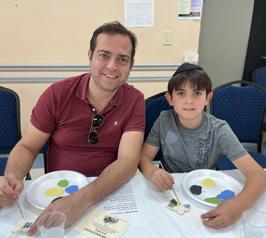










































In this interview, I’m introducing you to Major Benni Gur a resident of the Gush Etzion community of Alon Shvut since 1986. He’s had a long and varied career in building up Israel both at home there and abroad. Son of a Holocaust survivor, Benni fought and was injured in the Yom Kippur War. He holds the rank of major in the IDF. Parenthetically, he has sons and a grandson serving in elite units in Gaza and Lebanon. He understands the high human cost of war, having lost five members of his high school yeshiva and 13 members of the Kerem B’Yavneh yeshiva during the Yom Kippur War. His professional life has included being a shaliach for the Jewish Agency in the US. A vice-president for the Jerusalem College of Technology, CEO of the Friends of Mercaz HaRav yeshiva, a lecturer in the School of Social Work for the Hebrew University, and since 1996, the CEO of Mesimot, which offers guidance and training to managers of non-profit organizations in Israel and the Diaspora.
Of late, Benni’s focus has been on bridging perhaps the greatest social divide in Israel today – the gap between secular and religious Jews. Let’s talk about it.
MOTTI – Benni, it’s a pleasure to know you. You are clearly an “Ohev Yisrael”, a lover of Israel, both the land and the people. What’s the mood today?
BENNI – Of course, we are pleased in a bittersweet sort of way for the release of the hostages. As always the price is a high one and

the risks are equally so. But unlike our cousins who love death by their own declaration, we love life. But I’ll jump to the bottom line. Oct. 7th was the greatest social shock we’ve experienced since the founding of the state. Questions abound – how it happened? What it means? Who are we on the other side of it? The old conception that this couldn’t happen today was pulverized. I believe any thinking and feeling Israeli suffers from some form, mild or intense, of PTSD over the shift of a paradigm in conventional thinking.
MOTTI – How do you compare Oct. 6th with Oct. 8th?
BENNI – Great question. Oct 6th we were shattering each other into opposing factions. The court reform issue was the best-known divisive issue. But not the only one. Oct. 8th we were collectively shattered into bewilderment. Oct. 7th was a cruel instrument to force a new level of galvanization between these disparate factions. From my historical and sociological perspective, new opportunities have arisen for a bitter people to become a better people. In the work of a new project I’ve aligned with, I’m seeing not-to-be-believed break-
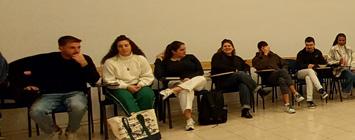
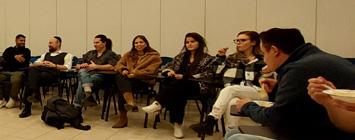
throughs in understanding, commonality, acceptance, and unity.
MOTTI – I presume this isn’t randomly happening. What’s the mechanism for this?
BENNI – About eleven years ago, two Jerusalemites - Dr. Moshe Kaplan MD and his co-founder Rabbi Mordechai, one a physician, the other a physicist of sorts - launched a movement called “Be A Mensch” (beamensch.com). The aim was to enlist some high-profile influencers, through visual and print media, to inspire Jews to embrace the most basic notion of relating to one another in a menschlich manner. It worked. The high-profile phase was short. But the longer work of Be A Mensch continued. The founders realized that the secular-religious divide was metastasizing; they had to move quickly with a basic cure into some key sectors of Israeli life in a recovery effort.
MOTTI – What were or are those sectors?
BENNI – For time’s sake, I’ll combine them, though they didn’t happen simultaneously. Mensch first got involved with HaTzofim, the Israeli scouting organization,




























which produces many of Israel’s future leaders. What does get involved look like? For the Scouts, it was and is weekly dialog encounters with religious Jews over the course of a year. The result has been a melting of misconceptions about “the other” as both sides realized how much they have in common.
This template of dialog that leads to mutuality, without any agenda to turn the one into the other, has been magical. And we’ve successfully applied this now in secular high schools where we have access – invited access – to 500,000 students. The students and teachers want to meet religious Jews! Imagine that!
We’ve also been given access to engage in dialog within branches of the IDF, including a significant cadre of fighter pilots who, by their own admission, see national unity among Israeli Jews as a top priority. We’ve been invited to host deep and meaningful conversations with some of the titans of Israel’s high-tech industry. They called us!
And more recently, we’re running for-credit courses in the Hebrew University and Reichman University where secular students meet with highly trained members of our Mensch team to explore difficult questions. I have to tell you that the bond between these conversationalists transcends any mere academic exchange. They become friends for life. They come for Shabbat. They attend simchas. And often, they deepen their own commitment to Jewish living and learning. None of this is by any coercion. They are led by their own compelling self-interest.
MOTTI – So you wouldn’t call Be
BENNI – It depends what you mean by that. Our primary goal is respect, friendship, and unity between secular and religious persons. We are not out to “change people”. It’s that sincere agenda that allows us to be the welcome counterparty to the larger secular Israeli society which may be threatened by conventional kiruv organizations. We have been granted access to places others cannot enter. We have validated what solid research has shown, that the greatest predictive factor in a non-observant person becoming observant is the positive influence of a long-term relationship with an observant friend.
Also, the world has shifted. We have shifted. The people we meet with don’t care how much we know about Judaism. They want to know how much we care about Jews –them in particular. If we can discover how we are connected to day in caring, we can rediscover the historical and spiritual connections we share from the past. We see that real relationships one-onone over time accomplish far more than any rapid-fire seminar could do.
tensive.
BENNI – It is. And it’s costly. But let me summarize. We have a large team of sophisticated observant young men and women who are proficient in the worldview, mindset, language, and values of their secular counterparts. They are highly trained by seasoned leaders. Not just anyone can do this. That’s why before Oct. 7, they could go to a demonstration and neutralize the opposition by quickly finding
common points of concern. And a bowl of cholent often helped, also!
Beyond the impressive team we’ve garnered, we have an approach that we refer to as “the disruptive business model” that allows us to be accepted as the counterparty in the dialogs we host or are invited to join. This model works. It could work in the Diaspora, but our focus is on damage control on the post-Oct 7th social front lines in Israel.
So the three-fold combination of our access, our proficient team, and our dynamic model of engagement is what has propelled Be A Mensch to the forefront of lasting social change within the spheres of influence we have today. We believe we are getting some “help from Above”, if you will, to keep going despite the many challenges involved in doing this. But I’ll leave you with this thought. Imagine the impact if we can influence 500,000 high school students, or dozens of pilots, or several scores of business leaders, or a few hundred university students to simply “be a mensch”. Imagine the organic unity that can flourish from that. And I have news for you – you can imagine it, but we are seeing it daily now. We have access to these sectors now. And the demand for expansion is significant. That’s what keeps me going and why we cannot stop. Disunity will kill us. Real unity will revive us. But it has to happen face-to-face, hand-inhand, eye to eye, heart to heart.
MOTTI – Thank you, Benni, for these hope-inducing insights. Much success to you and to Be A Mensch.
BENNI – And to you and your readers. Todah Rabbah.

I was recently seated amongst a group of twenty-somethings who had recently made aliyah and joined the Israeli army. Protecting fellow Jews is a tremendous act of bravery, and the commitment of these individuals is admirable. Somewhere in the middle of the conversation, a few mentioned that although they no longer keep Shabbos, they feel closer to Hashem. I asked my kids about it and they mentioned how a lot of people change once they join the army, or when they make aliyah in general.
I spoke with another friend who also mentioned that ever since he made aliyah, he wasn’t quite as ritually observant yet felt more connected to G-d. One man I met, who is frum, admitted that since he moved to Israel, he finds a deep connection in meditation and doesn’t feel the need to wrap tefillin every day.
What struck me as odd was that these statements were all made by individuals who grew up Sabbath observant and attended Jewish Day schools.
Once when I was young and naïve, I had a client who wore a nice beard, white shirt and black pants, and supported his children while they sat and learned. I later found out he did time for a white-collar thing and from what I saw, he wasn’t a very ethical man.
I knew a woman who wore a sheitel and was very “frum.” One day, she purchased jewelry from my store yet refused to pay. After several letters, threats and Din Torahs, she admitted that she couldn’t pay her bill because she supported her children “who sat and learned in kollel.” Huh?
Surely, making aliyah is a huge mitzvah, as is serving in the Israeli army, but nowhere in halacha are we permitted to violate the commandment of keeping Shabbos, unless of course, you are saving a life. Serving the Jewish state – or even moving there – does not give anyone carte blanche to rewrite the hierarchy of mitzvot, just as wearing long payis hardly excuses dishonest business practices. What accounts for these inconsistencies?
Moral licensing is a cognitive bias that occurs when a person uses their prior good behavior to justify later behavior. This often occurs subconsciously and is a very dangerous tool of the evil inclination, whose ultimate goal is to test man. Sometimes the challenge is easy to pass. Many people are unaware or uninterested, and therefore succumb to temptation quite easily. Others are more vigilant, avoid the traps and put up walls.
It is for these smart individuals that the yetzer hara concocts an even more powerful elixir: ratio-
nalization. To accomplish this, he takes the back door.
“Listen, you’re. a good man. You are always serving Hashem and his klal, but everyone needs a break. It’s not the biggest deal to miss Mincha every so often…”
And then the games begin.
“Listen I may not wear tzitzit or make brachos but I donate more money to Israel than half of my shul.”
“I may not cover my hair, but at least my skirts aren’t ripping at the seams.”
“I may not give my partner every dollar I should, but I’m a harder worker and besides, I pay tuition!”
Truth be told, this is a tactic that was first utilized by the nachash when he accosted Chava. He knew he had no chance of telling her to eat from the tree, as she would simply say that G-d forbid it. Indeed, the nachash opened by asking, “Did G-d indeed say, ‘You shall not eat of any of the trees of the garden?’”
The rest, as we say, is history. What happened? Clearly, Chava forgot who she was dealing with. The moment she engaged the snake, she was done. All he needs is a crack in the armor where he can pry anything small enough to create an opening.
A dialogue.
Because that’s all it took for Chava to change her whole tune

as she goes in verse two from, “G-d has said, ‘You shall not eat it, nor shall you touch it, lest you die’” to “So when the woman saw that the tree was good for food, that it was pleasant to the eyes, and a tree desirable to make one wise, she took of its fruit and ate. She also gave it to her husband with her, and he ate.”
She went from defender of G-d’s wishes to violator, and even brought her husband down with her. In just four pesukim.
It’s not rocket science. There’s no dialogue with a snake. Their job is to trick you and bite you. The great Lubavitcher Rebbe explains that the intent of the evil
inclination is to cause a person to do the opposite of what G-d wants. End of story. As long as you engage him, he will win.
My father has successfully employed this very tactic when dealing with unwanted sales calls. Before they even begin, he tells them. “I’m not interested” and hangs up before they have a chance to sell him anything.
tree (or steal while giving maaser money.) But guess what? I ain’t buying anything you’re selling so do yourself a favor, take your top hat and tails, and move onto your next foil.”
The evil inclination has many tools in his shed of deception. As long as we remind ourselves to avoid justifying sin and follow the well-traveled road of sincere observance, will we navigate a holier – and more fulfilling – life.
Chava could have avoided the pitfalls of sin if she had simply said in her mind: “Listen up Mr. Cunning beast, I know what your agenda is. You want me to fail. You’ll say anything to get the ball rolling. You’ll even convince me that it is a mitzvah to eat from the Avi Ciment lectures throughout the world and has just finished his second book, Real Questions Real Answers, and can be reached at www.AviTalks.com.












Stuff with either white or brown rice or even cous cous, quinoa, barley, bulgur, orzo, or even broken (slightly undercooked) spaghetti. This is a really versatile, grab what you got for bulk, stuffing.
Ingredients
• 4 large peppers
• 4 cups boiling water
• 1 tablespoon canola oil
• 1 pound ground beef
• 1 medium onion, coarsely chopped
• 1 tablespoon kosher salt
• 1 teaspoon freshly ground black pepper
• 2 cups cooked rice
• 1⁄4 cup chopped fresh dill
• Pinch ground nutmeg
• 1 (28-ounce) can chopped tomatoes, undrained Cucumber and Red Onion Salad
• 1 cucumber, unpeeled, rinsed, and sliced
• 1 red onion, halved lengthwise and thinly sliced
• 1⁄4 cup Basic Vinaigrette
By Jamie Geller

Preheat oven to 350° F.
To prepare peppers: Cut off tops of peppers. Reach in with your fingers or a large spoon and gently remove the seeds and ribs, making sure to leave peppers whole so they can be stuffed. Set aside the pepper tops. Place the whole peppers in a 9-inch square baking pan and pour boiling water in them. Set aside.
Finely chop pepper tops. In a medium sauté pan, heat oil over medium-high heat. Crumble the ground beef into the pan. Mix in the onions and pepper tops. Season with salt
and pepper. Mix well and cook for 5 minutes. Stir in cooked rice, dill, and nutmeg; mix well. Drain peppers and stuff them with beef mixture. Return peppers to the baking pan. Pour tomatoes over and around peppers and bake for 20 minutes. Arrange peppers and tomatoes on a serving platter and serve with Cucumber and Red Onion Salad.
Cucumber and Red Onion Salad
In a salad bowl, mix cucumber and red onion with 1⁄4 cup Basic Vinaigrette. Toss and serve.
Source - Quick & Kosher: Meals in Minutes

















1. It’s One of Four Jewish New Years
The Mishnah (Rosh Hashanah 1:1) mentions that the Jewish calendar has four different “New Years.” Tu BiShvat is the New Year for Trees, which determines the age of trees for tithing and mitzvot.
2. The Date Is Based on Rainfall in Israel
Tu BiShvat is celebrated on the 15th day of the Hebrew month of Shevat because, by this time, most of the winter rains in Israel have already fallen, and the trees begin to bloom again.
3. Significance in Jewish Law
Tu BiShvat serves as a cutoff date for various agricultural laws, including tithing and the prohibition of eating fruit from trees during their first three years (orlah). Fruits that blossom before this date are considered part of the previous year, while those that blossom after belong to the new year.
4. Custom of Eating Fruits
It is customary to eat fruits on Tu BiShvat, particularly those associated with the Land of Israel, such as grapes, figs, pomegranates, olives, and dates. Some have the tradition of consuming 15 different types of fruits on this day.
5. Connection to the Land of Israel
Tu BiShvat is closely linked to Israel’s agricultural cycles. By this date, most of the winter rains have fallen, and the sap in the trees begins to rise, signaling the start of a new growing season.
6. Mystical Significance
Kabbalists, particularly those from the city of Safed in the 16th century, imbued Tu BiShvat with mystical significance. They developed a special seder (ritual meal) for the day, involving the consumption of specific fruits and the drinking of four cups of wine, symbolizing the spiritual dynamics of the day.
7. Tu BiShvat and the Carob Tree
In some communities, it is customary to eat carob (also known as “bokser”) on Tu BiShvat. This tradition honors the carob tree’s resilience and its association with the sage Rabbi Shimon bar Yochai, who, according to tradition, subsisted on carobs during his years in hiding.
8. Tu BiShvat and the Cairo Geniza Evidence of Tu BiShvat celebrations during the Middle Ages has been found in the Cairo Geniza, shedding light on ancient customs and prayers related to the holiday.
9. Tu BiShvat and the Etrog
In some Hasidic communities, it is customary to eat the etrog (citron) from the previous Sukkot on Tu BiShvat, often in the form of preserves or candied fruit. This practice symbolizes a connection between the festivals and the continuity of blessings.
10. Tu BiShvat and the Israeli Knesset
The cornerstone-laying of the Israeli Knesset (parliament) took place on Tu BiShvat in 1949, symbolizing the nation’s growth and development.
First place: $30 gift card | Second place: $20 gift card | Third place: $10 gift card
Email your artwork to editor@tsfcommunityvoice.com
Make sure to include your name, age and city. Entries must be received by February 10.
This type of contest encourages creativity, education and community engagement. It allows kids to express themselves through art, and it also provides an opportunity for their work to be showcased in the magazine.

Sponsored by: SMASH HOUSE BURGERS smashhouseburgers.com (305) 351- 9545

3,000 4,000 5,000

NEXT WEEK’S SUPPLY LIST
-2 Clear Plastic Plates
-2 Printed Templates -Black Sharpie -Colored Sand -Glue -Stapler -Scissors -Pen -Two Magnets
-4 Different Colors of Craft Foam Sheets

CONTEST
WIN A PRIZE!
Finish the weekly project, snap a pic, and email us at info@jcm.museum for a chance to win a prize. Let’s get creating!
When Yosef became second to the king, part of his job was providing food for the people during the famine. His brothers, having been hit by the famine as well, came to him, not yet knowing it was Yosef, to purchase food. When Yosef finally revealed himself to them, they were shocked and felt ashamed over how they had treated him. Rather than treat them as terribly as they had treated him, Yosef chose to repay his brothers’ bad intentions with kindness and generosity, without a hint of anger or resentment.
Yosef married Osnat, who gave birth to Efraim and Menashe. According to some, she was the daughter of Dina (Yaakov and Leah’s daughter) and was brought down to Mitzrayim by Malach Michoel so she could eventually marry Yosef.

As the oldest son of Rochel, Yosef was loved dearly and favored by his father, Yaakov. Resentful of this, his brothers sold him into slavery in Mitzrayim. After enduring slavery and imporisonment, he interpreted Pharaoh’s perplexing dreams, which led him to become second to the king. He is known as Yosef HaTzadik because of how strongly he stuck to his Yiddishkeit even in the immoral society of Mitzrayim.
When someone hurts us, while it is human to feel upset, we can choose to treat them with goodness, graciousness and empathy. For example, if a sibling excluded you from a game and the next day you have a bag of treats to share, you can choose to still share with this sibling.
What is another example of treating someone with compassion even if they wronged you?

Paint the entire canvas with black paint. Let it dry.

Once it’s traced, use one or more colors of puff paint to trace the letters.





Meanwhile, cut out the letters from the template.
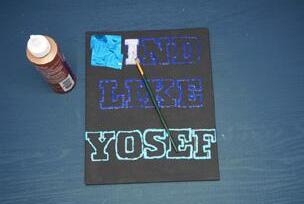
After it’s dry, start foiling the inside of each letter one at a time. Paint the inside of each letter with tacky glue using your smaller paintbrush.
little hearts all around the canvas with your puff paint by making little dots and dragging a tooth pick through each one to make it a heart. Let the entire canvas dry completely.

Once the canvas is dry, set out your letters where you’d like to have them, and use your pencil to trace the letters onto the canvas.

Cover the inside with transfer foil, pressing down to cover the entire area. Let it dry overnight.
off the transfer foil and your art is ready to be enjoyed!






















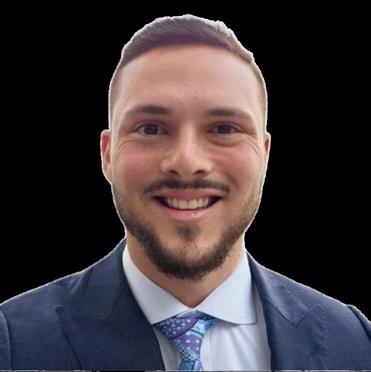



Eden Gardens Orlando is thrilled to announce a significant milestone in the construction of its highly anticipated community Mikvah. The Mikvah’s foundation has been poured, setting the Mikvah on track to finish construction by the end of 2025.
The Eden Gardens Orlando Mikvah project will feature stateof-the-art men’s and women’s Mikvaos, alongside a dedicated Keli Mikvah. Designed with well-appointed private rooms and premium finishes, the Eden Gardens Orlando Mikvah will provide community members with a comforting and uplifting experience.
Perfectly crafted for the needs of your Frum family, Eden Gardens Orlando homes feature 4-14 bedrooms and semi-custom designs. Playgrounds, parks, sports courts, and a private pool in every home enable resort-style living with unparalleled comfort and connection — all in a stunning vacation-like setting.
Eden Gardens Orlando boasts a warm and welcoming, tightknight community with yearround Minyanim and an Eruv. Experience the joy, community, and camaraderie of Eden Gardens Orlando, where a house feels like a true home.
Starting at only $489,900, don’t just imagine your perfect home, find it today!






As February rolls in, so does the countdown to tax season. For business owners, this is a critical time to get organized and ensure compliance with federal, state, and local tax obligations. Taking the right steps now can help reduce stress and even uncover opportunities for savings. Here are some practical tips to help you prepare for tax season effectively:
1. Organize Your Financial Records
Gathering all relevant financial documents is the foundation of tax preparation. Ensure you have:
- Bank statements
- Receipts and invoices
- Payroll records
- Expense reports
- Previous year’s tax returns
- Loan and interest statements
A robust bookkeeping system can make this process smoother. If you’ve been using accounting software, review your data for accuracy and completeness.
2. Reconcile Your Accounts
Ensure your business’s bank accounts, credit cards, and financial statements align. Reconciling discrepancies early will save time and prevent errors when filing your taxes.
3. Review Tax Law Changes
Tax regulations often change, and staying updated is essential. For 2024, business owners should pay attention to any updates regarding deductions, credits, or reporting requirements that could impact their filings.
4. Maximize Deductions and Credits
Identify potential deductions and credits to minimize your taxable income. Common areas to explore include:
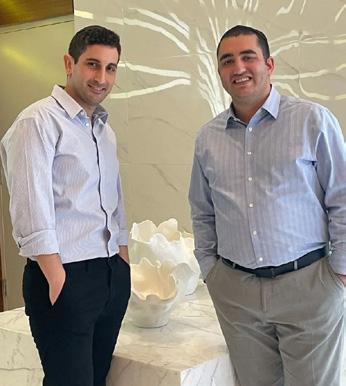
- Office expenses
- Vehicle and travel costs
- Marketing and advertising expenses
- Employee benefits and retirement plans
- Depreciation of assets
5. Prepare for 1099 and W-2 Reporting
Ensure all contractors and employees have received the necessary tax forms. For independent contractors, submit Form 1099-NEC, and for employees, file W-2 forms. Both must be sent to recipients and the IRS by the end of January, so act now if you haven’t already.
6. Schedule a Tax Planning Session
Meeting with a CPA or tax advisor can be invaluable. They can help identify strategies to reduce your tax burden, uncover overlooked opportunities, and ensure your business complies with all requirements.
7. Address Estimated Tax Payments
If your business pays quarterly estimated taxes, the final 2023 payment was due on January 15. Double-check that all payments were
submitted accurately to avoid penalties.
8. Evaluate Your Business Structure
Tax season is also a good time to evaluate whether your current business structure (e.g., LLC, S-Corp, C-Corp) still aligns with your financial goals. Your tax advisor can help you assess if a change might provide tax advantages for the upcoming year.
9. Plan for Extensions if Necessary
If you anticipate needing more time to file, begin planning for an extension now. While an extension provides more time to submit paperwork, any taxes owed are still due by April 15 to avoid interest and penalties.
10. Prioritize Digital Security
With tax season comes an increased risk of scams and fraud. Protect sensitive financial data by using secure methods to share documents and ensure your accounting software is up to date.
Preparing for tax season doesn’t have to be overwhelming. By starting early, staying organized, and seeking expert advice, business owners can navigate this busy time with confidence. Taking these proactive steps will not only help ensure a smooth tax filing process but also set the stage for financial success throughout the year.
For personalized tax planning and preparation, consider consulting with Signature CPAs & Advisors. We provide tailored guidance tohelpyourbusinessthrive.








By Yitzchak Steinberg
For buyers looking to purchase property in Israel, understanding the fundamental differences between Israeli and American real estate law can be crucial to successful transactions. One of the most significant distinctions lies in the binding nature of the initial contract signing – a difference that can catch many American investors off guard.
In the United States, real estate transactions typically follow a well-established process where the closing date marks the final, binding moment of the deal. However, in Israel, the initial contract signing itself constitutes a binding agreement, making it essentially equivalent to what Americans consider the closing. This distinction has profound implications for both buyers and sellers in the Israeli market.
A remarkable case from my two decades of legal practice perfectly illustrates this principle. Twenty years ago, I represented an American O family interested in purchasing a historic building in Jerusalem’s prestigious Nachlaot neighborhood. During a meeting in a Jerusalem hotel lobby, the parties reached an agreement, and the terms were written on a hotel napkin – yes, a napkin –which both parties signed.
Shortly afterward, the seller attempted to back out of the deal, presumably after receiving a better offer. In the United States, such a preliminary agreement
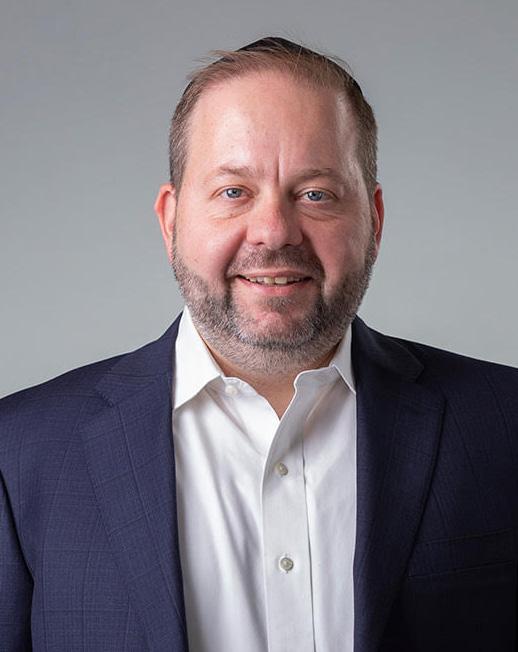
might have been considered merely a memorandum of understanding. However, in Israel, we took the case to court, and the judge issued an order compelling the seller to proceed with the sale.
The court’s decision was based on a fundamental principle of Israeli contract law: once parties have agreed on the essential terms and signed a document reflecting their agreement, it constitutes a binding contract.
This case underscores a vital lesson for American investors: in Israel, the signing of the contract is not just a preliminary step but rather the decisive moment that legally binds both parties to the transaction. The document’s format – whether it’s a formal contract drafted by attorneys or terms written on a napkin – is less important than the
clear expression of the parties’ intentions and agreement on essential terms.
Understanding this crucial difference can help American buyers better prepare for real estate transactions in Israel. It means that due diligence should be completed before signing any agreement, as the ability to back out after signing is significantly limited compared to the US system. It also emphasizes the importance of having experienced legal counsel familiar with both jurisdictions who can guide investors through these distinctions.
As Israel’s real estate market continues to attract Jews from all over the world, particularly from the US, recognizing these fundamental legal differences becomes increasingly important. The binding nature of contract signing in Israel represents not just a legal technicality, but a different philosophy about commitment in real estate transactions – one that demands careful consideration and proper preparation from American buyers.
Yitzchak Steinberg is a legal expert specializing in representing foreign residents in Israeli real estate transactions. Over the years, he and his team have successfully guided thousands of international buyers through property acquisitions in Israel. His extensive experience spans clients from across the globe, making him a trusted advisor in navigating the complexities of Israeli real estate law for non-residents.
office@ys-law.co.il +972-2-5002923
Watsapp: +972-53-277-5431






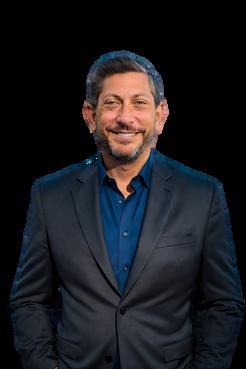



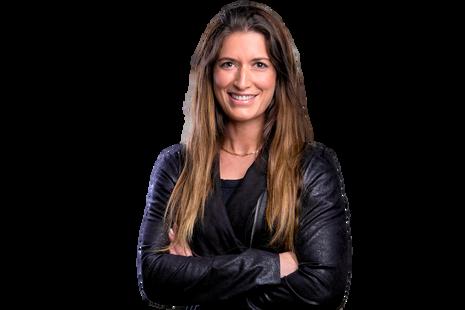






























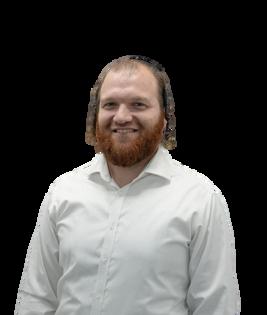


























“Our goal is to provide you with excellent products and services at competitive prices, and we’re here to work with you to make that happen. Your satisfaction is important to us, and we’re committed to meeting your needs.” That was the introductory message I got when I clicked to speak to a representative for an online reorder of my contact lenses.
This was my third time using this website for contact lenses, as they were the most competitive and easiest to work with thus far. This time, I had a lower offer from a competing company vying for my business by offering me a 30% discount. Still, I was interested in staying with them, as I was used to the platform, and they already had my prescription information.
I asked if they would match outside offers. The immediate reply was, “Your order contains items that incur a processing and/ or handling charge. We guarantee the total cost of your order will be the lowest on the internet, even including these fees.” She continued, “We want to ensure you get the most value from your purchase with us. If you have found a better offer online, please share the details with us. We’re more than willing to review and see if we can match or even beat that offer.” I took a screenshot of the offer, which spelled out a much better deal. I sent it over and waited a few moments.
“Agent typing,” my screen showed. “Agent typing” for almost five minutes. Then the message
By Shmuel Shayowitz
simply read, “Now, when it comes to pricing, it’s essential to consider the overall value and quality of the product or service you’re getting. While it may seem like our price is higher compared to some alternatives out there, let me take a moment to explain why that is: our top priority is providing the highest level of quality and customer satisfaction.”
Wait, I thought they guaranteed the lowest price?! I asked if there was anything they would be willing to offer to maintain my business, but she said there was nothing she could do. She did end the conversation by saying, “You get what you pay for,” and terminated the session.
Later that day, I replayed those words after speaking to a client I had been working with for several months. They finally went into contract after several failed bids. Their offer was finally accepted as I helped them secure the deal by bringing in a co-signer. The condition was that the co-signer needed to be refinanced off within six months after the buyers filed their 2024 tax returns and showed more qualifying income. Everyone agreed, and we completed the loan application with the three of them.
A few days later, I got “the call.” In the interest of ‘transparency,’ he told me that he also reached out to his financial advisor, who could get him a lower rate than what I provided. It was a full 1% lower than what I was offering. It came with some conditions that
he didn’t want to share with me entirely, but regardless, it was a lower rate. I kept asking about fees, and he finally told me there was almost a $5,000 origination fee. Wait, what?!
Despite the significantly lower rate, they were only saving $330 a month compared to my offer, without the 5K. Even if they kept my mortgage for an entire year, which they couldn’t, my proposal was much more advantageous. I explained to my client that you need to consider both the rate and the cost to obtain that rate. Nonetheless, his financial advisor said theirs was still a better deal because it was the lowest price. I asked if they explained how closing costs work, but he said they really didn’t speak by phone; it was all via email. I’m afraid to think about what else may not be explained throughout the rest of this complicated and delicate transaction. As I said my goodbyes, all I could think was, “You get what you pay for.”
Shmuel Shayowitz (NMLS#19871) is a respected Real Estate & Finance Executive, Writer, Speaker, Coach, and Advisor. As the President and Chief Lending Officer of Approved Funding, a leading national mortgage banker and direct lender, Shmuel has facilitated over $3 billion of mortgages over the past two decades. Shmuel’s expertise spans various licenses and certifications, including specialized mortgage underwriter, licensed real estate agent, and accredited coach. His market insights and experience are highly sought after in the real estate, finance, and coaching industries. In addition, Shmuel is a seasoned real estate investor and property manager, facilitating thousands of rentals nationwide. Shmuel can be reached at www. approvedfunding.com/shmuel.

